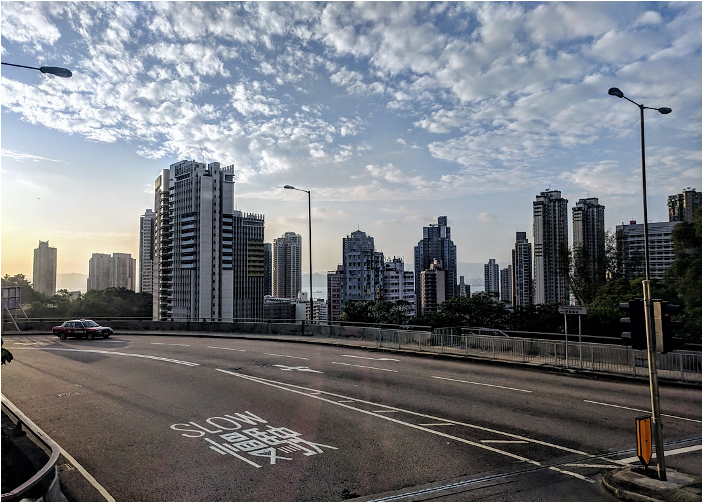There are countless reasons to study abroad for a master’s degree, or for any educational opportunity. Crossing borders to exchange ideas, research, and connections is essential to a globally-minded community. Wanderful supports students around the world who are working hard to learn and to share their brilliance, despite visa challenges and political upheaval.
Studying for a master’s degree is challenging, there is no doubt about that. It is a massive step up from studying for an undergraduate degree. Deciding to study overseas for a master’s degree is an additional challenge.
Nevertheless, despite my initial hesitations, I can say that studying a master’s degree overseas is one of the greatest academic decisions I have made.
My Reasons to Study Abroad for a Master’s Degree
Before exploring why I chose to study my master’s abroad, I will briefly mention the reasons why I have chosen to go abroad in the first place.
In the first year of my undergraduate, I attended one of the generic ‘Study Abroad Fairs’ hosted by my University.
Initially, my thoughts consisted of: ‘I just want to graduate and get a job…I do not want to study abroad or study for a master’s degree.’
However, after talking with a variety of students and listening to their personal experiences of studying abroad, my attitude changed.
During my undergraduate degree, I decided to undergo a year abroad in Tokyo. And then I subsequently opted to study for my Masters in Hong Kong.

The Value of a Master’s Degree
You may question why I wanted to study abroad for my master’s.
First and foremost, I wanted to be unique!
For example, looking at data provided by the Higher Education Student Statistics in 2018, it has been found that within the UK:
- Only 22% of the working population has a master’s degree
- …with only 4% of the total workforce acquiring their master’s abroad.
Being a part of the 4% of graduates is not only interesting, but also allows me to stand out from the crowd when applying for work post-graduation.
International Opportunities Post-Graduation
Another reason why I chose to do my masters overseas was to discover the international opportunities that are increasingly available post-graduation.
I studied ‘International Economic Law’ in Hong Kong’s central business district.
The ability to live and work in such a multinational city allowed me to attend various conferences and talks by a variety of international businesses.
This consequently gave me the ability to network with guests, exchange LinkedIn contacts and learn about the opportunities available to postgraduates after completing their Masters.
Since returning home, I have begun exploring employment opportunities internationally, as I believe that the opportunity of studying within Hong Kong gave me the confidence to live and work anywhere. And I would like to realise these opportunities whilst I am still young!

Economics of Studying Abroad
Studying abroad for your master’s does not have to be expensive.
Another reason why I decided to do my masters abroad was for economical reasons! You may be thinking, ‘Surely, studying overseas is more expensive than studying a masters at your home institutions?’ Well, that is not always the case!
I was keen to go back to Asia to complete my masters and I particularly wanted to study in Hong Kong.
As Hong Kong is seen as the city which bridges the West with the East, studying economic law within the business district perfectly matched my degree with the location.
I researched the universities in Hong Kong that offered international scholarships and found three offering scholarships to international students.
I applied to all three universities, which was tedious I must say, as the process required the submission of different ‘cover letters’, ‘statement of interest letters’ as well as references by various professors from my previous university.
After five months of waiting, I got a reply from one of the universities offering me a scholarship to fund my studies and living expenses.
I believe luck played a part, however I would advise researching and applying extremely thoroughly to increase your chances of receiving the funding.
I do believe I am extremely fortunate to have been granted the opportunity and I would like to credit my professors in helping with my application.
At my university, the study abroad and careers office checked over my cover letters and statement of interest. They also provided guidance on how the letter should be formatted as well as structured.
I would definitely recommend getting your applications assessed before submitting, as such feedback is priceless and could be the determining factor in your application’s approval.
Language Learning Opportunities
Another reason why I wanted to study a master’s degree abroad was that I wanted to learn another language.
Before arriving in Hong Kong, I was eager to learn as many Cantonese phrases as possible; I allocated two hours each morning to revise phrases, learn new words, and speak as much as possible.
However, as much as the practice was helpful, I was nervous to speak during the first few months as I felt my pronunciation was incorrect. With time and patience, I became more confident and spoke more.
By the end of the year, I was definitely more fluent in the language and the experience of studying my masters abroad has further provided me with the confidence and the passion to keep learning Cantonese as a hobby.
I also believe that the opportunity to learn conversational Cantonese can create long-term professional benefits.
According to the British Chamber of Commerce, it has been found that being ‘some-what’ proficient in a foreign language is still a big plus for companies globally.
While corporations usually hire translators to take care of the details of foreign communication, the companies will still require managers who can meet and greet clients and function as the company’s face in foreign markets. Meaning that, even if I do not master the language, there are still hidden benefits which may not be apparent initially.
International Connections and Friendships
The final reason to study your masters abroad is the ability to create long-lasting friendships with international students from all over the world.
Studying your masters abroad allows you to meet people from all over the world and allows you to develop friendships that will last a lifetime.
The friends you meet will become your weekend travel partners, study buddies, and will be there for you when you’re feeling homesick.
Whilst I was studying in Hong Kong, I met this nice girl from Germany who was studying international business. We soon became close and went on trips together, visiting Macau, Taiwan, as well as all the local islands off Hong Kong.
Since moving home, we have kept in contact and frequently write to each other.
If you wish to meet friends outside of your university, apps such as Meetup and Couchsurfing allow you to join events and meet new people.
I found the apps very useful, as they also provided me with information concerning local events. For example, I attended the famous ‘Dragon Boat Race’ with some friends from Couchsurfing.
Looking for travel inspiration? Wanderful is a global community for travel-loving women. Connect with us:
If you wish to stand out from other postgraduates, whilst also immersing yourself into a totally different culture, then deciding to study your masters overseas may be right for you.
Considering the labour market is becoming increasingly competitive, studying your masters overseas may just give you ‘the edge’ over the other candidates within your home country.
